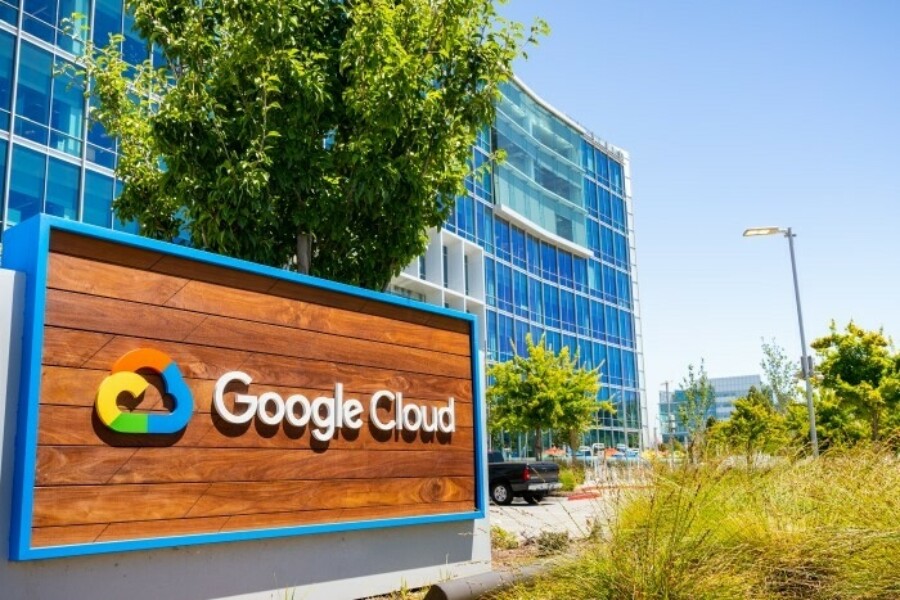
This week, Google joined the ranks of software companies transitioning their annual conferences from in-person gatherings to online events for 2020. Google Cloud Next kicked off its first of nine weeks of programming by focusing on industry insights the company gleaned from its executives, partners, and customers. The keynote address—featuring Sundar Pichai, CEO of Google and Alphabet, and Thomas Kurian, CEO of Google Cloud—not only laid out some of the most exciting updates coming to Google Cloud but also featured the two executives discussing how the software company is coping with the COVID-19 outbreak and how its solutions are helping customers in these difficult times.
“Like many of you, we’ve been trying to figure out how to be helpful at this moment,” Pichai said. “This experience allowed us to put our own tools to the test and make good use of infrastructure investments.”
The Future of Technology-Driven Work
Kicking off the keynote address, Pichai discussed how the COVID-19 outbreak and the recent racial justice movements that have gripped the world will have lasting impacts on the way business is conducted, and how Google Cloud will serve its customers. We will see our jobs become more digital, something companies around the world have known for months as they have transitioned large percentages of their employees to remote work. According to Pichai, 75% of companies plan to accelerate their digital investments.
“These changes will be significant and lasting,” he said. Pichai discussed how the future of work will become more collaborative and flexible, as technology is further integrated into the company’s day-to-day workflows and processes. The current situation, with employees, heavily relying on teleconferencing solutions to stay in touch only serves to emphasize his point. Google Cloud aims to address its customers' related needs, not only through its communication solutions, but also its cloud offerings.
New Innovations and Enhancements to Google Cloud
Pichai then turned the rest of the address over to Kurian, who detailed some of the new developments in the Google Cloud ecosystem, and how companies are leveraging theses solutions in the current climate.
“We are grateful for the work our organization has been able to do to support institutions during this period of great change,” he said. “While the process of recovery will be gradual, we are committed to helping organizations reimagine their businesses as they emerge from the pandemic.”
Kurian discussed how Google Cloud’s global network and a variety of deployment models (hybrid, public, etc.) help the company make this vision possible. He also announced some broad innovations to the Google Cloud ecosystem. Google has made further enhancements in its compute power and the performance of its bare metal servers.
The company also has increased the performance of Google Cloud’s scalable elastic file system, persistent disk solutions, and archival and storage footprints. Finally, Google Cloud’s networking capabilities have been upgraded, including advances to its CDN solution, improvements to its Cloud Armor and Network Intelligence Center offerings, and further optimizations for SAP solutions (including SAP environments as large as 24 terabytes in the cloud).
Updated Anthos Capabilities
The event also chronicled new enhancements to Anthos, Google Cloud’s multi- and hybrid-cloud offering that allows its customers to update and modernize their cloud platform. One of the biggest announcements was about how customers can run Anthos, which they can now do on Amazon Web Services (AWS), and preview it on Microsoft Azure.
Kurian noted that giving customers a choice in the cloud providers they work with was important to Google—so much so, that one of the biggest updates to Anthos is the introduction of BigQuery Omni, a multicloud analytics solution. Customers can get access to their data across Google Cloud, AWS, and (coming soon) Microsoft Azure clouds, eliminating expensive egress fees associated with moving data. Additional enhancements include improved data streaming and advances in machine learning capabilities.
Security Is King
The keynote also detailed new security and data privacy capabilities in Google Cloud. Kurian emphasized that the privacy of its customers is vital to Google Cloud. He promised the company does not sell users’ data to third parties. Customers “have sole control of who can access your data,” he assured.
Kurian introduced a few new security capabilities during the address. Confidential Computing encrypts data when it is at rest, in transit, and being processed, allowing customers to protect their data on Google Cloud. The Assured Cloud helps customers make sure their data is running according to industry and cloud regulations during all operations.
A Focus on Customer Success
The keynote ended with Kurian detailing the ways Google Cloud is prioritizing the success of its customers. The company made a few aggressive investments in projects aimed at helping Google Cloud customers succeed in any climate. It announced the new Google Cloud Customer to Community (C2C), an independent community aimed at bringing together Google Cloud customers and cloud professionals to share their knowledge and experience with each other. It also unveiled some new customer experience initiatives including the expansion of its global sales team and the introduction of a new mission-critical 15-minute response time support team.
More Google Cloud Next
Moving forward, Google Cloud Next has online sessions planned across the next eight weeks. Beginning on July 21, its Productivity & Collaboration sessions will begin, followed by Infrastructure sessions the following week.
“We are excited about what we have in store for you over the coming weeks,” Pichai said.
Register and view the full lineup for Google Cloud Next.